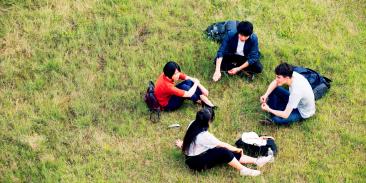Tool Helps Shipping Stakeholders Identify Best Ports for Developing Sustainable First Mover Initiatives
EDF, LR and Arup tool identifies port locations that maximize the environmental and community benefits of first mover initiatives in support of shipping’s energy transition
Environmental Defense Fund (EDF) and Lloyd’s Register (LR) Maritime Decarbonisation Hub, in collaboration with Arup, introduced today the Sustainable First Movers Initiative Identification Tool, a system to help shipping stakeholders align investment decisions that support the maritime energy transition away from fossil fuels.
The tool, which is presented in a preliminary findings report – The Potential of Ports in Developing Sustainable First Movers Initiatives – scores a port’s potential to produce and bunker electrofuels while delivering local environmental and community benefits in alignment with the global temperature target of 1.5 degrees Celsius set by the Paris Agreement.
“Ports can play an important role in kickstarting shipping’s decarbonisation process even before global policies are established,” said Marie Cabbia Hubatova, Director, Global Shipping at Environmental Defense Fund. “By considering the impact sustainable first mover initiatives can have on port-side communities, climate, environment and economies, resources can be better directed to locations where these initiatives will make the biggest difference.”
With close to two billion people living near coastal zones globally, the role of, and impacts on local port communities must be intentionally considered as the sector decarbonizes globally. Ports can play a crucial role in ensuring shipping decarbonisation efforts are done in a way that has positive impacts on port communities. The preliminary phase of the Sustainable First Movers Initiative Identification Tool analyzes 108 ports in the Indo-Pacific region according to five criteria including land suitability, air quality, renewable energy surplus, economic resilience and ship traffic.
It is also applied to three different port scenarios, including ports exploring fuel production and bunkering, ports exploring fuel exports, and ports exploring fuel imports and bunkering. The combined criteria and scenario evaluation determines which ports have the greatest potential (‘high potential’) for sustainable first mover initiatives to lead to significant emissions reductions and positive impacts in nearby communities, such as improved air quality and economic resilience.
“The transition to clean energy supply for shipping can be achieved only if stakeholders act together. Identifying potential port locations is the first step in this process,” said Dr Carlo Raucci, Consultant at Lloyd’s Register Maritime Decarbonisation Hub. “This approach sets the base for a regional sustainable transition that considers the impacts on port-side communities and the need to avoid regions in the Global South lagging behind.”
Regions in the Global South are fundamental in driving the decarbonization of shipping. To make this transition effective, the rate at which different countries adopt and scale up electrofuels must be proportional to the difference in capital resources globally to avoid additional costs being passed on to local communities. Sustainable first mover initiatives can play an important role in making this happen by ensuring the sector’s decarbonization is inclusive of all regions and by engaging all shipping stakeholders, including port-side communities.
“There’s a huge opportunity for early adopter shipping decarbonisation initiatives to unlock benefits for people and planet – shaping the way for a more equitable transition in the 2030s,” said Mark Button, Associate, Arup. “Our collective approach shows that taking a holistic view of shipping traffic, fuel production potential and port communities could help prioritize action at ports with the greatest near-term potential.”
The tool can be customized according to stakeholders’ needs and goals and is dependent on scenario desirability. The next phase of this work will include the selection and detailed assessment of 10 ports to help better understand local needs and maximize the value offered by sustainable first mover initiatives.
LR and EDF carried out a joint study on ammonia as shipping fuel, and LR and Arup have collaborated on The Resilience Shift study focused on fuel demand for early adopters in green corridors, ports, and energy systems, amongst many other projects.
One of the world’s leading international nonprofit organizations, Environmental Defense Fund (edf.org) creates transformational solutions to the most serious environmental problems. To do so, EDF links science, economics, law, and innovative private-sector partnerships. With more than 3 million members and offices in the United States, China, Mexico, Indonesia and the European Union, EDF’s scientists, economists, attorneys and policy experts are working in 28 countries to turn our solutions into action. Connect with us on Twitter @EnvDefenseFund
Media Contact
Latest press releases
-
New Report Outlines Need for Quality Interventions in Climate Finance Goal Under Discussion at COP29
October 30, 2024 -
New Findings Highlight 22% Growth in Pennsylvania’s Methane Mitigation Industry
October 29, 2024 -
New Jersey Board of Public Utilities announces order for charging of medium- and heavy-duty vehicles
October 29, 2024 -
Supreme Court Will Consider Decisions about Interstate Air Pollution Protections from Coal-Fired Power Plants
October 21, 2024 -
Biden Administration Investments Will Bolster Grid Resilience in the Wake of Severe Storms
October 18, 2024 -
Supreme Court Denies Requests to Block Climate Pollution Standards for Power Plants
October 16, 2024











